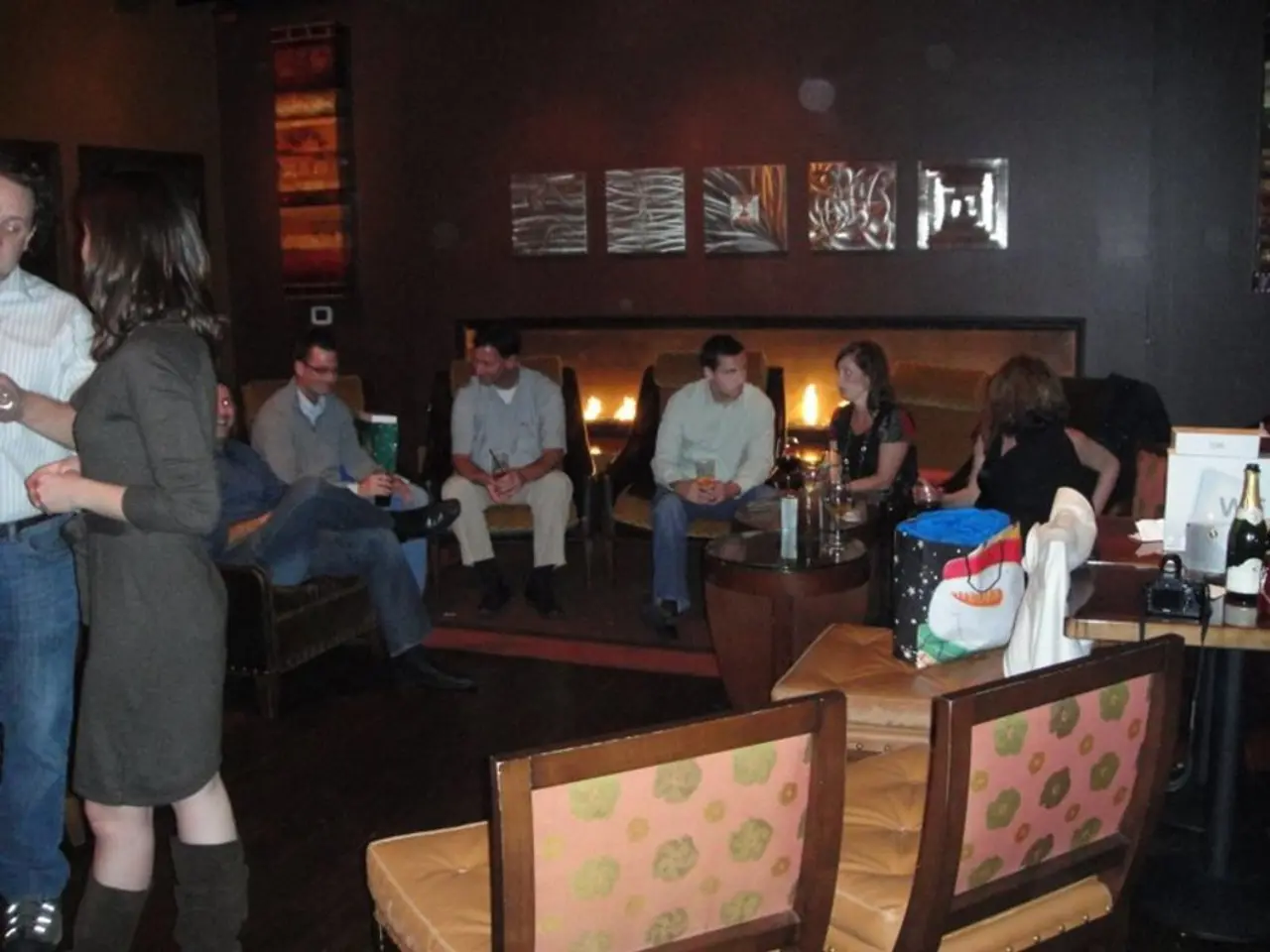Diplomats of the European Union gather prior to discussions between Trump and Putin, scheduled in Alaska
In the lead-up to the highly anticipated summit between President Trump and Russian President Vladimir Putin, scheduled for this Friday in Alaska, European leaders are taking a proactive stance to ensure Ukraine's interests are at the forefront of any potential peace negotiations.
The virtual emergency summit, scheduled for Wednesday, will bring together President Trump, German Chancellor Friedrich Merz, and other European leaders, including Ukrainian President Volodymyr Zelenskyy. This meeting is a clear sign of European leaders' commitment to being involved in any discussions regarding Ukraine's future.
Zelenskyy himself has strongly criticised the Alaska summit for excluding Kyiv, calling any decisions made without Ukraine's participation "stillborn" and "unworkable". He emphasised that only Ukraine should decide on any territorial concessions, and none should occur without binding security guarantees. European leaders appear to align with these key Ukrainian demands, as evidenced by their discussions prior to the White House meeting.
The Washington meeting aims to address concerns that the earlier U.S.-Russia summit could have sidelined Ukraine’s role and potentially pushed territorial concessions without Kyiv’s consent. Chancellor Merz was able to convince President Trump to meet with him and other European leaders, including Zelenskyy, in this emergency summit.
European leaders are approaching their comments on the summit carefully to avoid putting Trump on the defensive. However, they have made it clear that they view Ukraine as being in their backyard and are prepared to invest both money and manpower in any potential peace agreement. They remain committed to the principle that international borders must not be changed by force.
German Chancellor Friedrich Merz believes that real sanctions should follow the Alaska summit as a means to pressure Putin. He also stated that there can be no peace that rewards Russia's aggressive actions and encourages further action. The virtual emergency summit is intended to discuss the potential territorial concessions by Ukraine and the risk of making Ukraine the scapegoat in the conflict.
The leaders of Europe's biggest countries have emphasised that Ukraine's borders should not be changed by force, a stance that underscores their coordinated effort to bolster Zelenskyy’s position and push back against any unilateral decisions about Ukraine’s future. Their presence at the White House meeting, including NATO Secretary General Mark Rutte, European Commission President Ursula von der Leyen, French President Emmanuel Macron, British Prime Minister Keir Starmer, German Chancellor Friedrich Merz, Italian Prime Minister Giorgia Meloni, and Finnish President Alexander Stubb, underscores this commitment.
European leaders are wary of Putin's tactics and are prepared to deal with him, given their experience in dealing with him. They are approaching the situation with a united front, aiming to end hostilities and allow both sides to pursue a diplomatic solution. Any peace agreement, they believe, should not reward Russia's aggressive actions.
In summary, European leaders are countering Ukraine's exclusion from the Trump-Putin summit by actively supporting Zelenskyy, joining him in talks with Trump, and reiterating that Ukraine must be central to any peace negotiations or territorial decisions. They remain committed to the principle that international borders must not be changed by force and are prepared to take action to ensure Ukraine's sovereignty is protected.
Read also:
- Court petitions to reverse established decision on same-sex marriage legalization
- Trump's enforcement actions in Washington D.C.: Insights from the political arena
- Chinese Ambassador issues stern message to India regarding Trump's tariffs in midst of escalating trade feuds
- Aircraft collides with another one on the runway during landing at Montana airport, igniting flames








